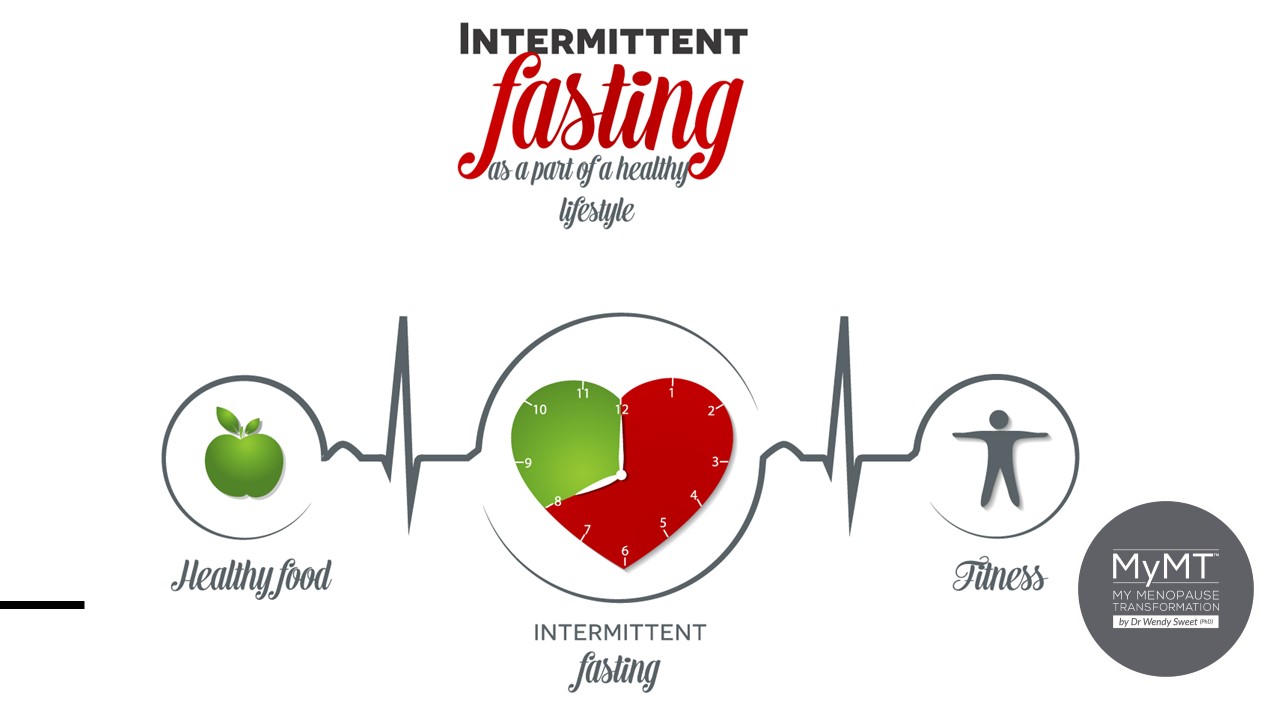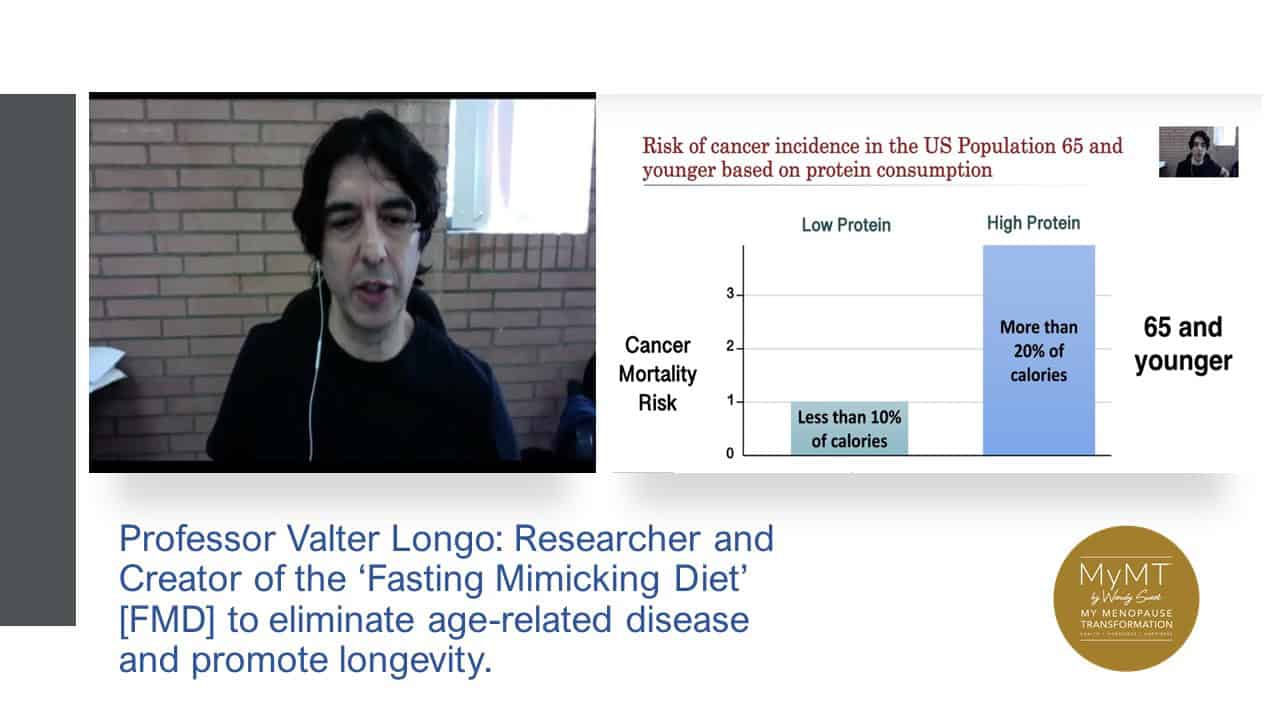
Fasting is not for the faint-hearted, nor is it for everyone – I don’t recommend it for women who are heavy exercisers, nor women who are lean and thin. But it is for the self-determined.
Back in the 1980’s when the American Cancer Institute was preparing its first ever guidelines, I don’t think any of us would have given fasting for 5 days a thought. It was a different world back then. None of us would have given menopause a thought, nor our changing health as we aged.
Here in New Zealand the main meal was mostly meat, vegetables and potatoes and back in the 1980s, cooking shows were also emerging giving us some inspiration on what to eat. I wouldn’t hesitate to guess that over 30 years later, most women are still doing the same.
I know that until I researched women’s healthy ageing and our menopause transition, I wouldn’t have given caloric restriction a thought, however, as we navigate health changes during menopause, it’s time to understand it a bit better.
Caloric restriction (CR) and intermittent fasting (IF) are strategies aimed to promote health beneficial effects by interfering with several mechanisms responsible for cardiovascular disease and other health conditions, such as insulin resistance, high blood pressure, overweight status and inflammatory status. [Savencu et al., 2021]
Whilst much attention has been given to Intermittent Fasting, I like the research behind Professor Longo’s Fasting Mimicking Diet for caloric restriction. His decades of research have led him to find a way to exploit our body’s ability to regenerate itself and switch off the built-in mechanims in cells that make us vulnerable to disease and degeneration.
As Professor Longo’s research has found, this process begins in our 30s and 40s. And its fruits and vegetables, not high amounts of protein, that feature the most.
What you will notice from the Fasting Mimicking Diet, is that there isn’t an emphasis on protein consumption. A diet high in protein, especially animal protein, causes increased Insulin-like Growth Factor 1 [IGF-1]. IGF-1 is produced by the liver and skeletal muscle and is a hormone that, along with growth hormone (GH), helps promote normal bone and tissue growth and development.
His work has shown that high consumption of animal protein in mid-life (45-65 yrs) switches off the genes that control healthy ageing. As Professor Longo mentioned, “IGF-1 needs to be shut-down so we not only live-longer, but improve our health-span as well.”
I also began to better understand this high-protein connection through my women’s healthy ageing research, and having a lower protein intake, is just one of the surprises that I have for women who want to lose weight during or after menopause.

For over 30 years Professor Longo has been studying the health of the world’s oldest people from the Blue Zones countries, including his native Italy.
During this time he has become a world-leading and award-winning scientist for his work around calorie restriction and how to ‘switch-off’ genes that cause disease. A lot of his research has been in cancer prevention, including breast cancer. There are many women on my programmes who have had breast cancer, so I loved sharing some of his publications with any who were interested to discuss with their Doctor.
There are two main areas of Professor Longo’s research that I want to share with you:
- In the 1990’s a group of scientists from UCLA went into a ‘biosphere bubble’ in Arizona to do the world’s first experiments on longevity and our genes. As part of the experiement they had been calorie-restricted and consumed very few calories a day for 2 years. However, by the time they emerged, they were very skinny and very grumpy. So, whilst their biomarkers and blood work improved, this was not the way to live their life. Dr Longo knew he had to find a better way to increase longevity.
- This led him to look into cellular ageing. What he discovered in his research was that if the cells are starved of nutrients, especially protein and sugars, then they lived twice as long.
Professor Longo lead the charge on calorie restriction and using fasting or modified fasting to improve longevity. His results of over 20 years of clinical research are a game-changer when it comes to improving our health as we age. This includes obesity, diabetes, heart disease, breast cancer and even dementia. Impressive.
As I undertook my own doctoral studies into women’s healthy ageing, this longevity research led me towards establishing a new way through menopause that places menopause in healthy ageing studies.
If we don’t get this phase of our life sorted and un-do the inflammation that’s been building up for years, at a time when our hormonal changes are making us more vulnerable to health changes, then our years ahead can become a whole lot more complicated in terms of our health. Our parents generation has already discovered this.
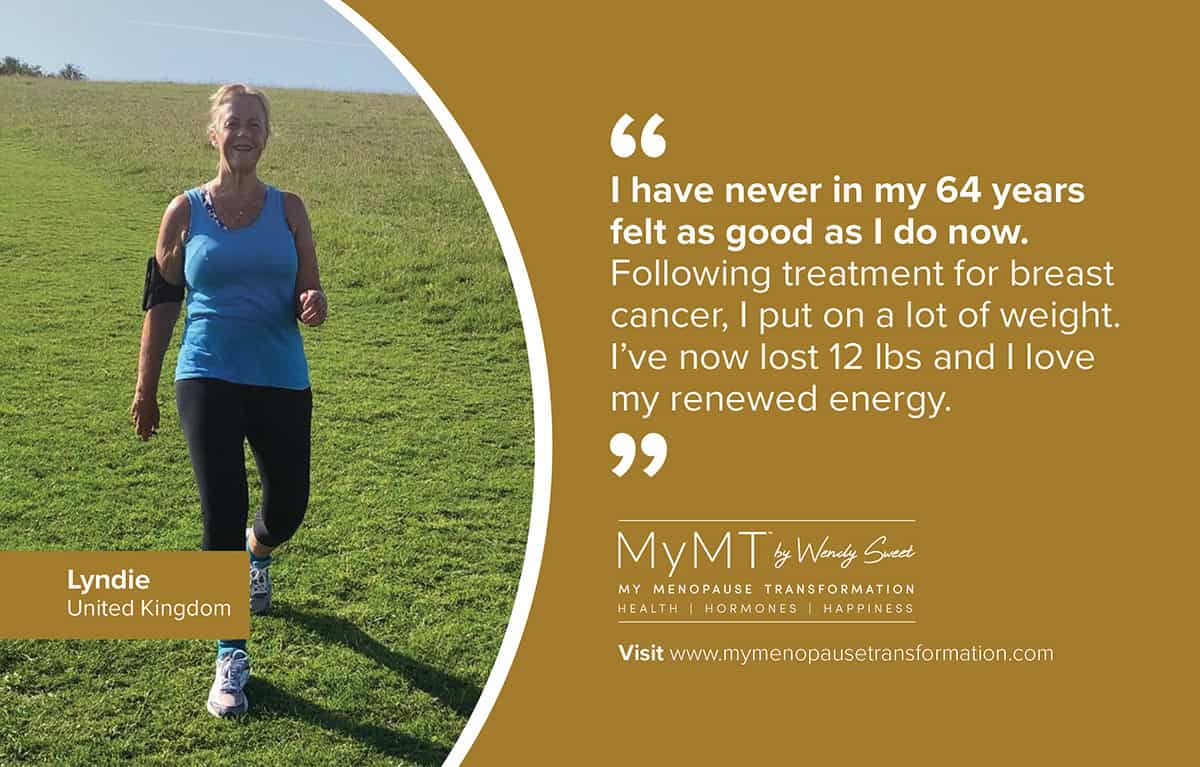
The research that has emerged from longevity studies had already led me towards coaching women on the MyMT™ programmes about how much our liver changes as we age and how to change our diet to accommodate these changes, especially when it comes to our weight loss in menopause.
For decades, the Italian Professor has been researching cell regeneration and how we can all stay young. His work teaches us that some form of caloric restriction helps to speed-up a process that the body naturally undertakes when we are younger, called apoptosis. This is when the cells regenerate.
But we need a way of activating this process and according to Professor Longo, you enable this, through a form of fasting, which he has called the ‘Fasting Mimicking Diet’. His clinically-evidenced regime differs from the popular 5:2 diet.
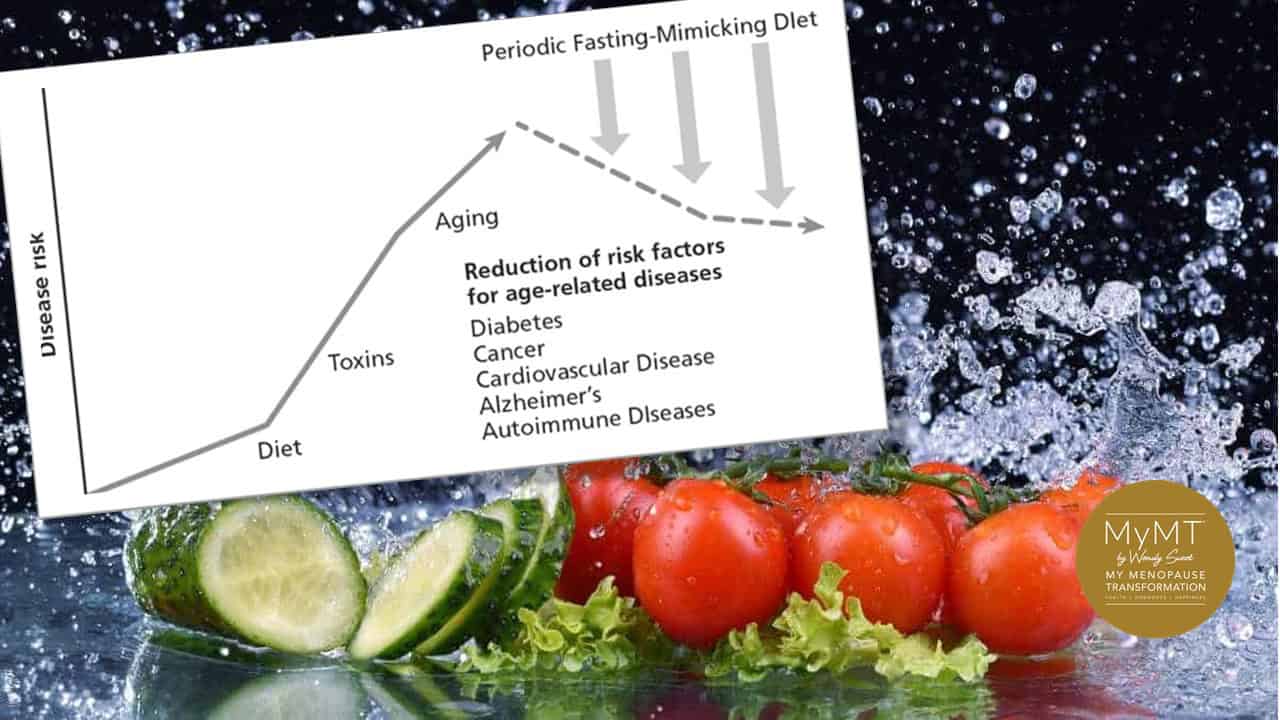
The concept of the ‘fasting-mimicking diet’ is to trick the body into thinking it is experiencing a full fast, like a water fast, except you can eat certain foods during the period of 5-day fasting. This makes undertaking it much easier psychologically and physiologically according to Professor Valter Longo. I will await hearing this from women on my programme, some of whom are undertaking it this week.
The Fasting Mimicking Diet (FMD) is based on his years of research. Whilst it’s not completely fasting (you can still have vegetables and soups/ broths and a coffee a day), it takes you through a phase of 5 days of graduated caloric restriction.
According to this fascinating research, we should all do this type of Fasting Restriction in mid-life to have a re-set of our genes and metabolism. Recognised internationally as a strategy to delay older-age diseases, mid-life is the time to do this and reducing our protein intake whilst on the fast is important.
It’s also a type of diet that we don’t need to do all the time.His protocol suggests to restrict caloric intake for 2-5 days (with Day 1 being slightly higher calorie intake) and then eat a normal Mediterranean diet (this is the type of diet I have modified for us in the MyMT™ programmes too) for the other 25 days but to get the right outcomes, then you must complete a 3 month cycle of this.
When you reduce calories, then you are essentially shrinking your liver, gut, pancreas and colon cells (he shared a photo of the colon to prove this!). When you do this, your body goes into ‘starvation’ mode. What ensues is the turnover of old cells (autophagy) and regeneration of new cells as you gradually increase your food intake after the fasting period is over.
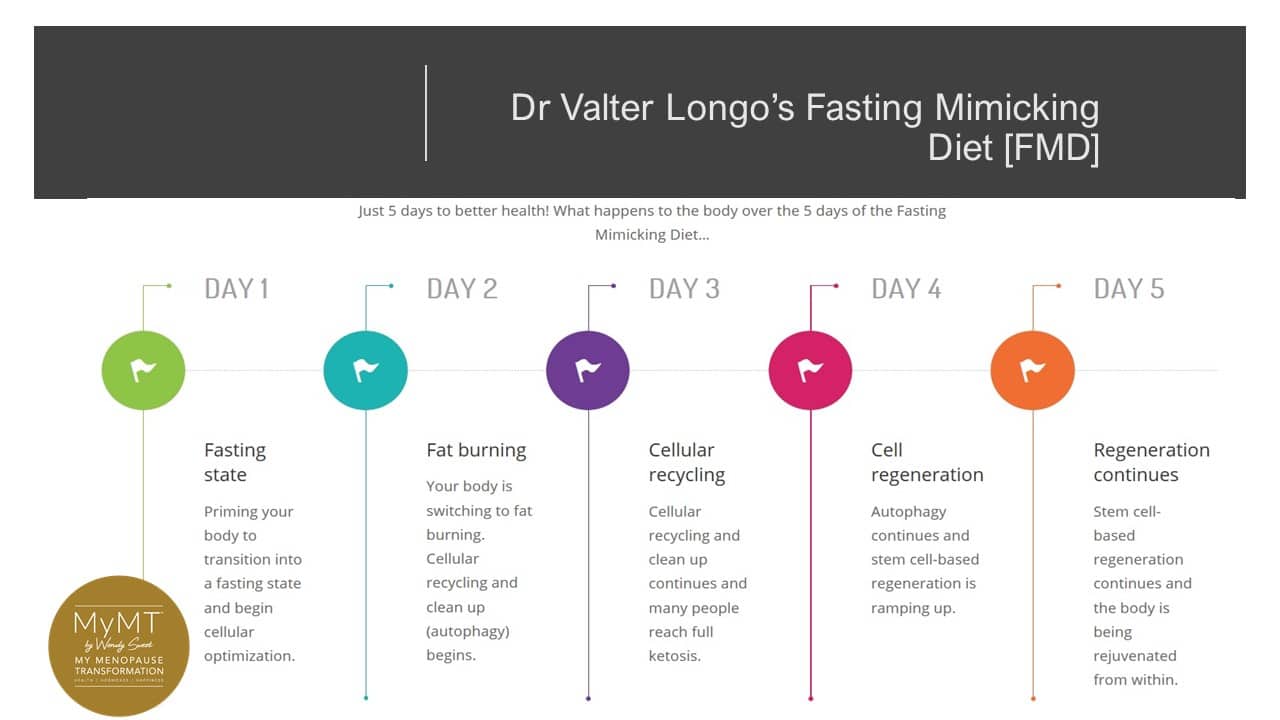
Now the good news is, that you can still eat twice a day, with a couple of snacks, but on Professor Longo’s regime, your food choices must be completely plant-based. As I shared his protocol and gave some meal ideas that I had put together based on his regime with women in my coaching community, I cautioned that this diet is not for everyone.
If you are doing a lot of exercise, then you won’t be eating enough for your energy needs and if you are feeling a bit stressed or you aren’t sleeping, then please be aware that increased stress uses up more energy and gives you a faster heart rate and increases your anxiety.
Finally, for those of you who are going through peri-menopause and menstruating heavily, then please be very careful about any fasting and make sure that before you start, you get your iron and B12 levels checked with your Doctor.
If you are low in these nutrients, then sort these levels out first, because your hot flushes and sleep may become worse if you fast and then don’t have the energy intake your body needs to support menstruation.
I hope you’ve enjoyed exploring Professor Longo’s Fasting Mimicking Diet, as I’ve enjoyed talking about it not only here, but I also provide a module on various forms of fasting and how to do this progressively, for those on my 12 week programmes.
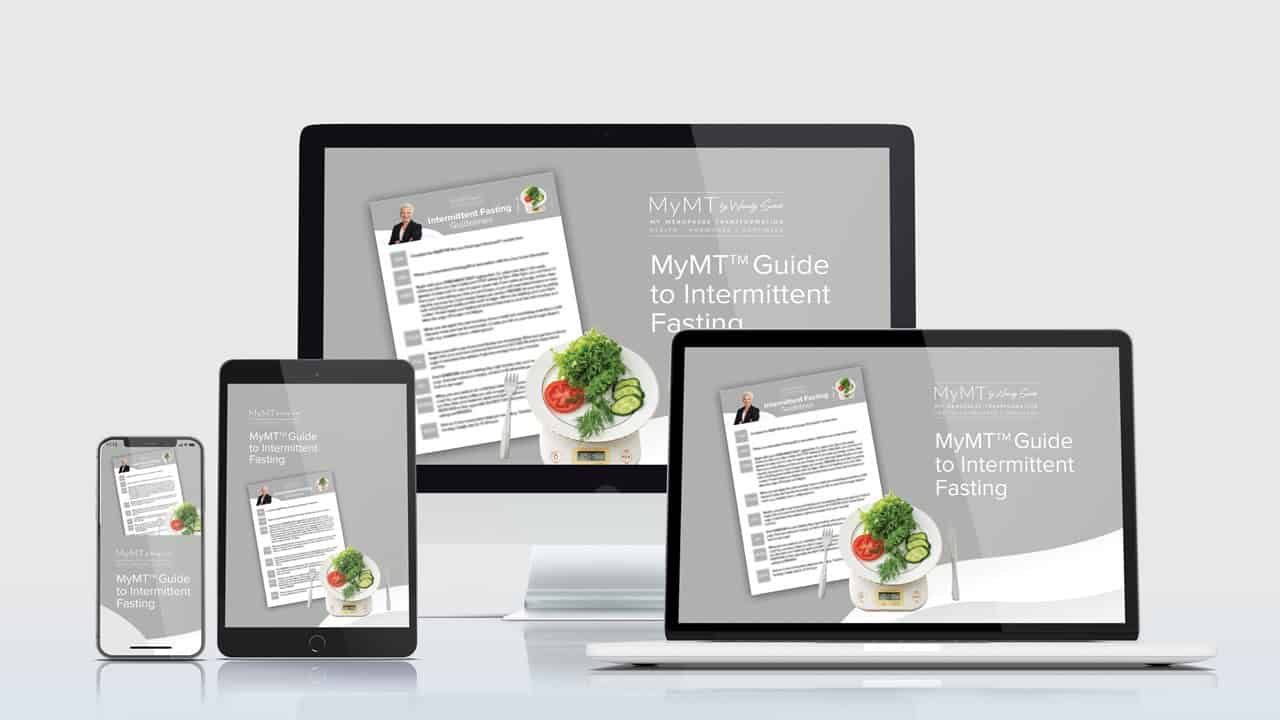
References:
Longo, V. (2018). The Longevity Diet. Australia: Penquin Books.
Min Wei, Brandhorst, S.,Shelehchi, M., Longo, V. et.al. (2017). Fasting-mimicking diet and markers/risk factors for aging, diabetes, cancer, and cardiovascular disease. Sci Transl Med. 9(377), 1-25. doi:10.1126/scitranslmed.aai870
Nair PM, Khawale PG. Role of therapeutic fasting in women’s health: An overview. J Midlife Health. 2016 Apr-Jun;7(2):61-4. doi: 10.4103/0976-7800.185325.
Savencu C., Adina, L., Farcaş G. Bînă Anca, M. … Sturza, A. (2021). Impact of Dietary Restriction Regimens on Mitochondria, Heart, and Endothelial Function: A Brief Overview. Frontiers in Physiology, 12
